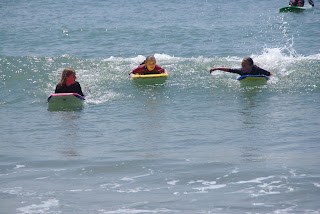Well, at any rate, The Hobbit was one of my favorite books growing up. I loved the charming way the story begins, the beautiful world it describes, and especially the humor. I even liked it better than The Lord of the Rings because it wasn't as dark and serious. As I've probably mentioned before, The Hobbit began as a story for Tolkien's own children, and when it was first published that's all there was about hobbits; The LOTR wasn't imagined yet and the ring was just a simple magic ring – it wasn't The Ring that it later became.
 And that's the perspective Corey Olsen ("The Tolkien Professor") takes in his new book Exploring J.R.R. Tolkien's "The Hobbit". Olsen goes through The Hobbit chapter by chapter and points out the prevailing themes such as Bilbo's differing natures (Baggins vs. Took), how he grows through his choices, and how he actually becomes the burglar he was hired to be. He also discusses the role luck plays in the story and explains those songs the dwarves and elves sing that I always thought were so strange (now they make more sense). He doesn't bring in any peripheral information from Tolkien's life or his motivations for writing the story, but he does discuss the minor changes Tolkien made in preparation for the LOTR books.
And that's the perspective Corey Olsen ("The Tolkien Professor") takes in his new book Exploring J.R.R. Tolkien's "The Hobbit". Olsen goes through The Hobbit chapter by chapter and points out the prevailing themes such as Bilbo's differing natures (Baggins vs. Took), how he grows through his choices, and how he actually becomes the burglar he was hired to be. He also discusses the role luck plays in the story and explains those songs the dwarves and elves sing that I always thought were so strange (now they make more sense). He doesn't bring in any peripheral information from Tolkien's life or his motivations for writing the story, but he does discuss the minor changes Tolkien made in preparation for the LOTR books. In fact, did you know that Gollum originally waved a cheerful goodbye to Bilbo after showing him the way out of the caves back in the 1937 edition? I didn't. But when The Hobbit became a publishing success and fans were clamoring for more, Tolkien changed parts of the story slightly – like making Gollum more frightening and sinister – and blamed it on Bilbo trying to downplay the fact that he kinda stole the ring.
If you haven't already read The Hobbit, what's wrong with you? Oops, I mean, this would be an excellent book to read along with it, although there are a few minor "spoilers" where Olsen anticipates some events at the end of the story. But while a "book about a book" could sound kinda dull, I found it both fun to read and surprisingly interesting – like sitting in on the kind of discussions about the themes and ideas that I used to enjoy in high school and college English classes. (I guess I could always join a book club, but then I'd have to read what other people want to read and that just sounds like too much work.) I thought Olsen's conclusions and conjectures were very plausible, and his writing style easy to read.
Besides, what else are you going to do between now and December 14th?
(I was lucky enough to snag an advance copy of this book from Amazon Vine – they went pretty fast!)













